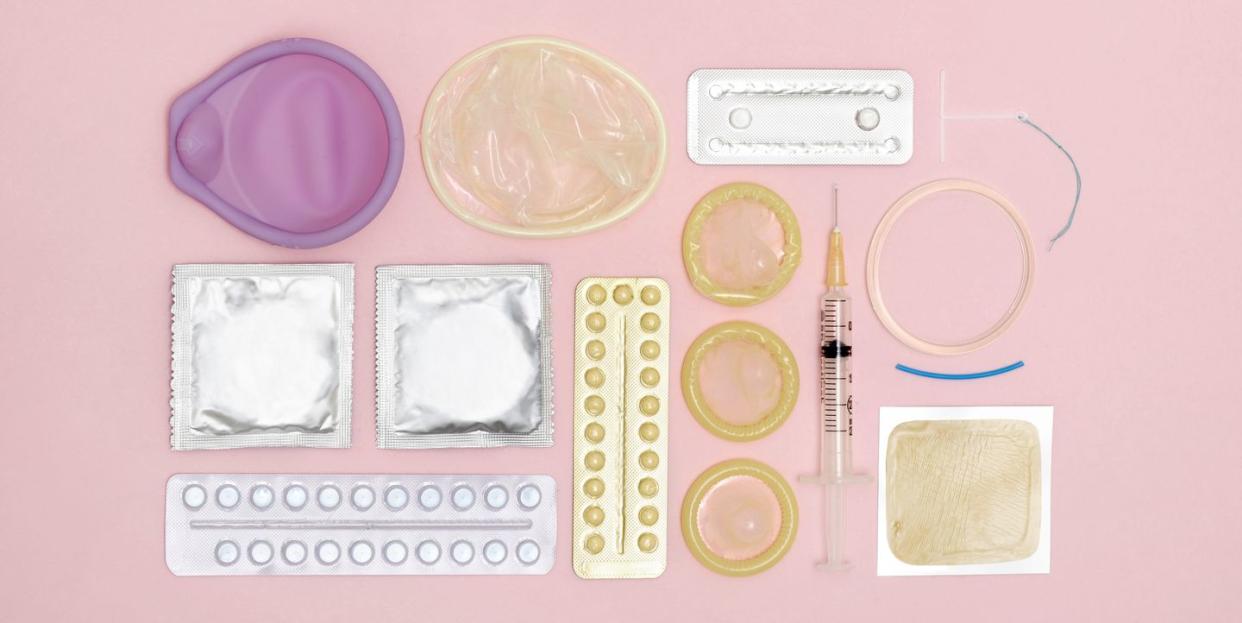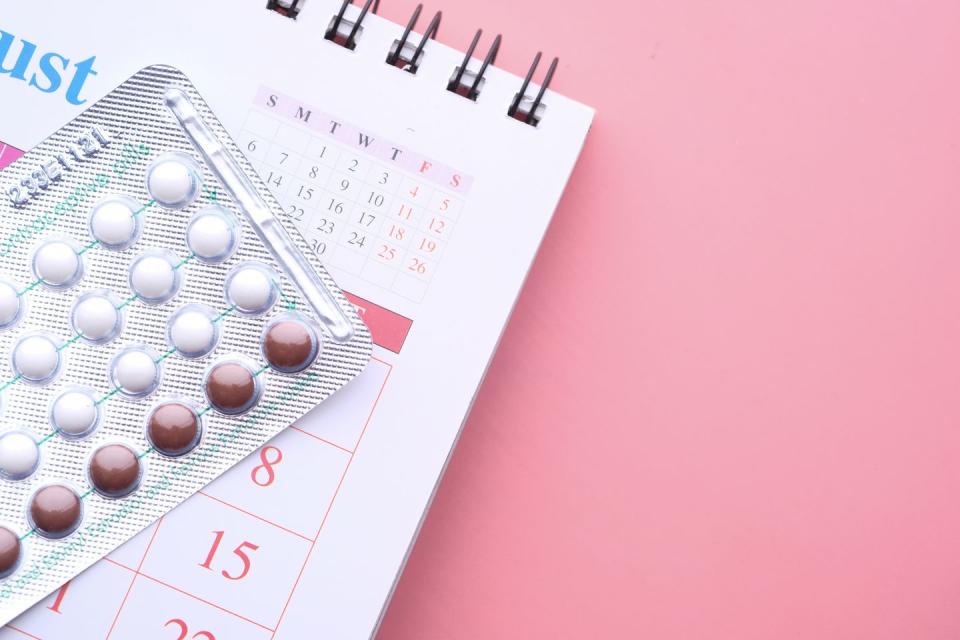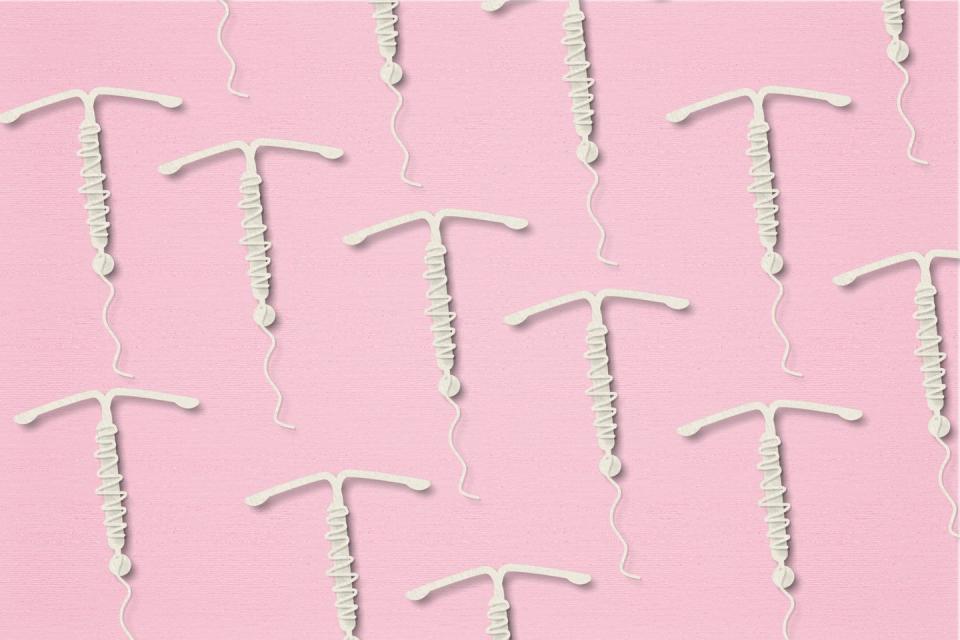“I’ve Used A Couple Types Of Birth Control—Here’s Why The Pill Is Still My Favorite”

Which of the following contraceptives have you or your partner(s) used as birth control in the past year? That was the question an international research organization asked in a May 2022 survey of adults in the U.S. The pill and condoms were practically tied for the most common (46 percent of the 1,000 people who responded said they used a condom in the past year, while 45 percent chose the birth control pill). The IUD came in a distant third, and the vaginal ring, contraceptive patch, diaphragm, sponge, and cervical cap, among others, trailed far behind.
One reason why the pill is an over-achiever is that it goes beyond its main job description—preventing pregnancy—to offer a number of extra benefits. “The big one is menstrual cycle predictability, as well as improved menstrual flow and decreased pain with periods,” says Natasha Spencer, MD, an obstetrician and gynecologist with Orlando Health Physician Associates. Oral contraceptives are also “ovarian cancer, endometrial cancer, and colorectal cancer protective in women,” says Dr. Spencer, meaning studies have shown that people who have taken the pill have a lower lifetime risk of these cancers. “The pill prevents menstrual migraines and improves acne and bone density in older women,” she adds. “And it can reduce the incidence of benign breast disease, ovarian cysts, pelvic inflammatory disease, ectopic pregnancy, and anemia.” The list goes on.
Another bonus? The pill’s newer formulations carry fewer of the original side effects, such weight gain and bleeding between periods. “In the past, formulations had higher levels of estrogens which were associated with significant adverse effects—such as blood clots—and cardiovascular risks,” says Dr. Spencer. “The current formulations are lower dose in combination with new progestins that have improved safety and tolerability.”
Of course, which birth control is right for you comes down to lifestyle and personal preference. The reasons you choose a contraception method may differ from the women in your circles. Here’s one woman’s story of how she came to the conclusion that the pill is her go-to birth control.
How I Found My Contraceptive Of Choice
I met my husband at a party in 2007 and it was definitely like-a-lot at first sight. We bonded instantly and became fast friends. After a few months, though, things changed as I realized our connection was unlike anything I’d ever had or felt. Corny as it may sound, I knew quickly he was the one. He really nudged me out of my comfort zone, getting me to try things I never thought I’d try or like such as skiing and hiking.
As things grew serious, we never really had the “baby talk,” but I saw how family-oriented he was—he loved playing with kids—so I knew he’d be a great dad. Plus, we come from similar backgrounds and share the same values; our families actually immigrated to the U.S. at the same time, something I didn’t know when we initially met.
My Birth Control History
In 2010, we got married. About six months later, I stopped taking the pill and we casually started trying for a baby, thinking it might take a while for me to get pregnant. To our surprise, it didn’t.
Up until that point, I had been on the pill for about eight years. Initially, I took it to alleviate menstrual cramps and heavy bleeding. My periods used to be so heavy I’d have to change pads every hour, making sure I bought the super-long ones so that I didn’t bleed through my pants and wearing dark colors for the week in case I did. There were days I had to skip school because the cramps were so bad. Nothing helped, not even ibuprofen, so my doctor suggested I go on the pill.

As I tried various brands, I gained weight or experienced mood swings. I didn’t connect these things to the pill so I stayed on it for about two years. Friends suggested I ask my doctor about other options and, thankfully, I did. It was then that I switched to a low-iron pill, which made me feel normal.
For me, the best feature of the low-iron pill was knowing that it was 99 percent effective without the side effects I experienced before. The only con about the pill is remembering to take it every day.
Changing Body, Changing Birth Control
After I gave birth to my daughter, I decided to switch birth control. My mom and sister both mentioned their success with the IUD (intrauterine device)—a small, T-shaped piece of flexible plastic that’s inserted into your uterus—so I figured I’d give it a try. I liked the idea of not having to take something every day. I was thinking how busy life is as a new mom and I didn’t want to accidentally forget about birth control.
Fast forward to 2013. My daughter was 15 months old, my husband had just started a brand-new business, and I was beginning to finally adjust to being back at work as a PR/marketing consultant full-time. Life was busy and a little scary given all the new adventures. So busy, in fact, that I almost didn’t notice when I was late with my period.
I avoided taking a home pregnancy test for a few days because getting pregnant was impossible—or close to it. The IUD is more than 99 percent effective. When my pregnancy test came up positive, I was in total disbelief. I did a second test. Positive.

I went to the doctor for an ultrasound and she confirmed that I was, indeed, pregnant. She said it looked like the IUD had moved and that’s why it failed.
I wasn’t sure what I should be feeling. Should I be happy because we were about to have another addition to the family? Or sad because this pregnancy was not at all part of our plan? My husband and I had wanted to wait at least three years before trying again, but we decided to remove the IUD and proceed with the pregnancy. Thankfully, it was not an ectopic pregnancy, which can be a side effect of becoming pregnant when an IUD is in the uterus; I had a full-term pregnancy and our second child was born in 2014.
Going Back On The Pill
Worried that it would fail again, I never even considered going back to the IUD. So, after my second child, I went back on the pill. My whole situation prompted my sister to get her IUD checked and removed because she didn’t want any surprises. She opted to go through surgery to get her tubes tied.
Unlike my sister, I’m not ready to tie my tubes. A few years ago, when a friend told me about the birth control implant, I thought briefly about switching to it since it would mean not having to remember to take my pill. But, after speaking to my doctor about it, and considering my experience with a different implanted device, I decided not to switch. Staying on the pill seems like the safest option for me.
*Not her real name.
You Might Also Like

